The announcement by BofA — who was blackmailed by numerous government officials — to suspend all foreclosures strongly encourages strategic default. Why would anyone pay their mortgage when they know they can stop paying and keep their house?

Irvine Home Address … 13 GREENWOOD Irvine, CA 92604
Resale Home Price …… $415,000

C'mon and hold me
Just like you told me
Then show me
What I want to know
Why don't we steal away
Why don't we steal away
Into the night
I know it ain't right
Robbie Dupree — Steal Away
Steal away. No, i don't mean to move quietly off into the night, I mean brazenly steal the house your living in. Why don't borrowers steal away? Why don't they keep the house and ignore the mortgage. With news like this, I really don't understand Why Struggling Homeowners Keep Paying Their Mortgages; after all Squatting is Becoming a Way of Life for Many Delinquent Borrowers, and now, the bank is stopping all foreclosures. Given these circumstances, isn't strategic default the most prudent course of action?
Not everyone will strategically default. Many borrowers really can afford their payments, and they rightfully figure the foreclosure moratorium will end; however, the struggling masses who are considering accelerating their defaults have just been given the green light to bail because they know the bank isn't going to foreclose on them. This is a dumb policy the banks will later regret.
BofA Halts Foreclosures
Bank Expands Freeze After Pressure From Government-Run Mortgage Firm
By DAN FITZPATRICK, DAMIAN PALETTA And ROBIN SIDEL — OCTOBER 9, 2010
Bank of America Corp. imposed a nationwide moratorium on foreclosures and the sale of foreclosed homes after it came under intense pressure from a government-run housing-finance giant worried about documentation problems, people familiar with the situation said.
The bank called the halt as concern mounted from legislators and state prosecutors about procedures used by lenders to foreclose on homes. Many banks use so-called robo signers, employees who sign hundreds of documents a day, without carefully reviewing their contents, when foreclosing on homes. Critics say that could result in improper foreclosures.
Improper foreclosures? Has anyone anywhere documented a case where a borrower who was current on their payments was foreclosed upon? Anyone who is not making their payments who ends up in foreclosure has experienced a "proper foreclosure." The notion of an improper foreclosure is simply a politician's fantasy. It gives those seeking election to public office something emotional to bluster about. The reality is there are no improper foreclosures.
Freddie Mac, the government-run mortgage-finance company that along with Fannie Mae owns many of the mortgages serviced by banks, pressed Bank of America to expand its search for problems with the foreclosure documentation process, said the people familiar with the situation.
On a call Thursday with several banks that included Bank of America, a Freddie official said the mortgage company wanted the institutions to look at foreclosure documentation across all 50 states, and asked them to consider putting a stop to the entire foreclosure process, say people familiar with the call.
Freddie Mac, an entity under government conservatorship and run by the Treasury department, asked major commercial banks to stop foreclosing on delinquent borrowers. This is one of two things: (1) It is a purely political act of desperate Democratic incumbents (Harry Reid and others) to make themselves look good going into next month's elections, or (2) the GSEs want to ramp up their own foreclosures while prices are still elevated and they don't want competition from the major banks (Government Expedites Foreclosures, Threatens Banking Cartel). I lean more toward political causes, but the economic issue cannot be dismissed.
Many in the banking industry fear that the widening paperwork problem could cause further delay on foreclosures and threaten an already weak housing market, which in turn is stalling the broader U.S. economic recovery. On the other hand, it could provide a brief financial respite to people who have defaulted on their mortgages and are still occupying their homes.
Could provide a respite? Do we need to give squatters any more breaks? For those of you waiting for these squatters to move out of your future home, how do you feel about this? You are paying a subsidy to the people living in your future home while you continue to work, pay bills, and rent.
As of August, there were more than 4.4 million home loans that were either in the foreclosure process or 90 days past due, according to mortgage research firm LPS Analytics. Since 2006, about 6.4 million homes have been lost through the foreclosure process.
Lost through the foreclosure process? Where did those houses go? Into the black hole of shadow inventory? The idea that these houses have been "lost" is very irritating. Any of those homes "found" on the MLS have been purchased by an owner-occupant or a cashflow investor who rented it out. While the squatter is living in the house, it is a completely non-productive asset; it costs money to maintain, but it produces no income. Foreclosure is the process by which we recycle these homes and obtain value from them. Nothing is lost in the foreclosure process.
Edward DeMarco, who heads the Federal Housing Finance Agency, which regulates Fannie Mae and Freddie Mac, said in an interview that officials were working to find a "tailored" response to the foreclosure problem that won't cause broader problems for the fragile housing market. "We are trying to be quick but measured in the approach and the response taken," he said. "We're concerned about the whole housing market, and we're concerned about what this means for taxpayers and other market participants."
Can you find any substance to Mr. DeMarco's comment above? I read only bullshit.
Last week Bank of America, J.P. Morgan Chase & Co. and Ally Financial Inc. agreed to more closely examine documents used in 23 states where a court's approval is required to foreclose on a home. J.P. Morgan said its review suspended nearly 56,000 foreclosures.
In conversations with Bank of America, Freddie said financial penalties or litigation could result if the bank did not take additional steps, said a person familiar with the conversations. Bank of America told Freddie that an audit of procedures in the 23 states uncovered no errors, this person said.
But Freddie said the work didn't go far enough and asked for a review in all 50 states, as well a stop to any foreclosure sales, said people familiar with the situation. Freddie Mac declined to comment.
Of course Freddie Mac declined to comment, they just threatened B of A with a lawsuit if B of A didn't do what Freddie Mac asked. This is government extortion through an intermediary.
Bank of America Chief Executive Brian Moynihan said Friday that the bank hasn't found problems in its foreclosure process, but opted to temporarily halt all foreclosures to "clear the air." He said the bank wants to "go back and check our work one more time."
Its decision is expected to stop "a couple of thousand" foreclosure sales scheduled for the next week, according to one person familiar with the matter said. The bank declined to specify how many homes it has in the foreclosure pipeline.
All this is only expected to stop a few foreclosures for a single week? Talk about a tempest in a teapot. i hope the politicians get some mileage out of this.
So far, Bank of America is the only lender to expand its foreclosure freeze, but others may be forced to begin or broaden a review, banking executives say. Wells Fargo & Co., one of the nation's largest mortgage lenders, says it hasn't stopped foreclosing on any properties.
Apparently, the government is threatening other major banks, and they fully expect them to capitulate. Unbelievable.
At this point, J.P. Morgan isn't expanding its foreclosure moratorium, but is widening its document review beyond the 23 states where it has frozen foreclosures, according to a person close to the bank.
Bank of America services 14 million mortgages, or one out of every five in the U.S., and its loan-servicing portfolio exceeds $2.1 trillion in size. Of its mortgages, 10 million came from its 2008 acquisition of troubled California lender Countrywide Financial Corp. More than 80% of its delinquent loans were acquired through Countrywide.
What a great bargain that deal turned out to be, right?
A push over the last week from politicians and law-enforcement officials troubled by reports of foreclosure problems only intensified the pressure on Bank of America, which has been working to improve its relations in Washington. It concluded that reviews in just 23 states wouldn't cut it with elected officials in the other states, a person close to the bank said.
"In this intense political season we are in, it didn't play well to say do it in some states but not your state," this person said.
That confirms this is nothing but a political ploy. Disgusting.
Senate Majority Leader Harry Reid (D., Nev.), whose state has been hit hard by foreclosures, and House Oversight and Government Reform Committee Chairman Edolphus Towns (D., N.Y.), both said Friday they welcomed Bank of America's move and called on other banks to follow.
Cassandra Toroian, chief investment officer at Bell Rock Capital LLC, a money-management firm, says the additional reviews are unlikely to significantly impact the outcome for homeowners who are facing foreclosure. "It's just delaying the inevitable," she says.
Actually, this policy is likely to have impact — it is going to cause more accelerated default.
Momentum builds for full moratorium on foreclosures
By Ariana Eunjung Cha, Steven Mufson and Jia Lynn Yang
Washington Post Staff Writers
Saturday, October 9, 2010
Senior Obama administration officials said Friday that a nationwide moratorium on foreclosure sales may be inevitable, despite their grave reservations about the impact a broad freeze would have on the nation's housing market and economic recovery.
Their remarks were made as pressure for a nationwide moratorium mounted Friday when Bank of America, the nation's largest bank, halted evictions in all 50 states. Senate Majority Leader Harry M. Reid (D-Nev.), who is locked in a tight reelection campaign, called on other major lenders to follow suit.
The White House has so far resisted joining the election-season calls for action but convened two interagency meetings this week to discuss reports that banks filed fraudulent documents to evict borrowers who missed payments as well as fundamental questions about whether banks are seizing properties without having clear ownership of the mortgages.
I know the Democrats are desperate right now, but this kind of pandering is a major turnoff. It's the kind of thing that makes me want to see them lose. It's also clear evidence that the pressure being exerted by Freddie Mac is coming directly from the Obama administration and Harry Reid.
One meeting was made up mostly of groups that regulate the housing industry, including the Department of Housing and Urban Development, the Treasury Department and the White House. The other, which involved the U.S. Securities and Exchange Commission, the Internal Revenue Service and U.S. attorneys from across the country, was focused on the question of whether financial fraud was committed.
With foreclosed properties comprising one in every four homes sold in the United States, the spreading moratorium could disrupt real estate deals in progress, slow down the process of clearing the backlog of troubled home loans and prolong the economic recovery, analysts said.
A freeze would also strike at the financial sector, just two years after it suffered one of the worst crises in its history. One government official who has been in discussions with several big financial firms said the banks are bracing themselves for a wave of lawsuits from homeowners who are fighting to keep their homes and from investors who had bought mortgage loans on Wall Street. On Friday, while the Dow Jones Industrial Average crossed 11,000, most major bank stocks fell.
It looks as if the government is going to delay the recovery by keeping a huge overhang of shadow inventory despite the inevitably lawsuits.
… Also Friday, the Federal Housing Administration said it had asked agency-approved mortgage servicers – which includes the nation's largest banks – to immediately audit their foreclosure operations. The FHA can impose financial penalties on companies that do not follow rules set by housing regulators.
Questions over the legal standing of banks in foreclosure proceedings as well as reports that these firms cut corners as they pushed foreclosures through the legal system fueled calls in Congress for a nationwide freeze and federal investigations.
Another tool of threat the government has is the FHA.
Reid, who had earlier sent a letter to major banks asking them to suspend foreclosures in Nevada, expanded that call Friday after Bank of America's announcement.
"I thank Bank of America for doing the right thing by suspending actions on foreclosures while this investigation runs its course," he said.
The Senate banking committee's chairman, Christopher J. Dodd (D-Conn.), said Friday that his panel will hold hearings Nov. 16 to investigate the morass.
Rep. Edolphus Towns (D-N.Y.), chairman of the House Committee on Oversight and Government Reform, said the top 10 mortgage lenders should immediately suspend foreclosure proceedings in all states.
"The implications of ignoring the foreclosure problems are far too great to be ignored," he said Friday.
Bullshit. I can't believe these guys have the nerve to say these things. I suppose they are politicians in close elections, so nothing should surprise me. These guys are unbelievable.
… "Calls for a blanket national moratorium on all foreclosures are a bad idea and would cause significant harm to communities at risk, the unstable housing market and the fragile economy," the industry letter said.
Suspending foreclosures could end up forcing banks, which act as service companies for the loans, to spend billions of dollars to compensate investors who own the pools of mortgages they manage. And it could add to the losses at Fannie Mae and Freddie Mac, the two government-owned mortgage financiers.
Pension funds and other investors in the pools of mortgage securities are worried that the big banks will get special treatment from Washington.
"What's happened is a gross mishandling of paperwork and often times a misrepresentation of the transaction," said Chris Katopis, a spokesman for the Association of Mortgage Investors. "The banks have to have some responsibility and accountability for this."
chaa@washpost.com mufsons@washpost.com yangjl@washpost.com
The only people who benefit from a moratorium are politicians and squatters. Everyone else gets screwed.
HELOC abusing squatters will benefit from a moratorium
As you contemplate whether or not this moratorium idea is good or bad, take a hard look at the people who will benefit the most. Today's featured property is a particularly bad case of HELOC abuse and squatting. They went to the housing ATM every year for another withdrawal. The income subsidy was enormous. After you see how these people lived over the last decade, ask yourself if this is the kind of behavior we want to subsidize and see more of.
- This house was purchased on 7/22/1998 for $132,000. Their original mortgage and down payment does not show up in my records. Let's assume they used an 80% first mortgage ($105,600) and a $26,400 down payment. This may have been a 3% down FHA purchase, but I don't know.
- On 10/4/2001 they refinanced with a $130,000 first mortgage.
- On 12/24/2002 they refinanced with a $175,000 first mortgage.
- On 10/30/2003 they refinanced with a $279,300 first mortgage.
- On 11/15/2004 they refinanced with a $385,000 first mortgage.
- On 11/14/2005 they refinanced with a $450,000 first mortgage.
-
On 12/28/2006 they refinanced with a $524,000 Option ARM.

-
Total mortgage equity withdrawal is $418,400.
-
Total squatting time is about 20 months.
Foreclosure Record
Recording Date: 09/11/2009
Document Type: Notice of Sale
Foreclosure Record
Recording Date: 06/08/2009
Document Type: Notice of Default
Foreclosure Record
Recording Date: 05/12/2009
Document Type: Notice of Rescission
Foreclosure Record
Recording Date: 05/06/2009
Document Type: Notice of Default
This family lived off their housing ATM machine. They were pulling out an average of $83,680 per year. That was roughly the median income in Irvine during that time.
Do you think we should encourage this kind of financial management? If we bail these people out or let them keep their house, we are ensuring we will have many more borrowers who emulate them in the future.

Irvine Home Address … 13 GREENWOOD Irvine, CA 92604 ![]()
Resale Home Price … $415,000
Home Purchase Price … $132,000
Home Purchase Date …. 7/22/1998
Net Gain (Loss) ………. $258,100
Percent Change ………. 195.5%
Annual Appreciation … 9.2%
Cost of Ownership
————————————————-
$415,000 ………. Asking Price
$14,525 ………. 3.5% Down FHA Financing
4.21% …………… Mortgage Interest Rate
$400,475 ………. 30-Year Mortgage
$78,371 ………. Income Requirement
$1,961 ………. Monthly Mortgage Payment
$360 ………. Property Tax
$0 ………. Special Taxes and Levies (Mello Roos)
$35 ………. Homeowners Insurance
$320 ………. Homeowners Association Fees
============================================.jpg)
$2,675 ………. Monthly Cash Outlays
-$309 ………. Tax Savings (% of Interest and Property Tax)
-$556 ………. Equity Hidden in Payment
$22 ………. Lost Income to Down Payment (net of taxes)
$52 ………. Maintenance and Replacement Reserves
============================================
$1,884 ………. Monthly Cost of Ownership
Cash Acquisition Demands
——————————————————————————
$4,150 ………. Furnishing and Move In @1%
$4,150 ………. Closing Costs @1%
$4,005 ………… Interest Points @1% of Loan
$14,525 ………. Down Payment
============================================
$26,830 ………. Total Cash Costs
$28,800 ………… Emergency Cash Reserves
============================================
$55,630 ………. Total Savings Needed
Property Details for 13 GREENWOOD Irvine, CA 92604
——————————————————————————
Beds: 3
Baths: 1 full 2 part baths
Home size: 1,642 sq ft
($253 / sq ft)
Lot Size: 2,110 sq ft
Year Built: 1976
Days on Market: 128
Listing Updated: 40459
MLS Number: S619881
Property Type: Condominium, Residential
Community: El Camino Real
Tract: St
——————————————————————————
According to the listing agent, this listing may be a pre-foreclosure or short sale.
Wonderful 3 bedroom 2.5 bath, two car garage with enclosed paito. Close to shoping, fwy, school and parks. Price to sell!
paito? shoping? That description is fewer than 20 words, and the realtor managed to misspell two of them.
![[BOFA]](https://sg.wsj.net/public/resources/images/P1-AX620A_BOFA_NS_20101008192429.gif)






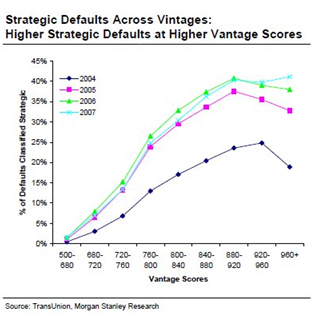
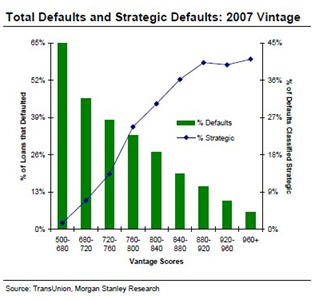
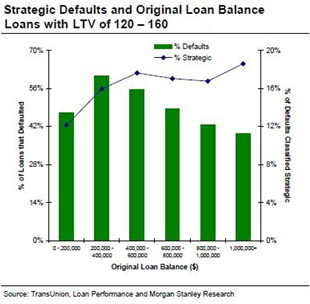

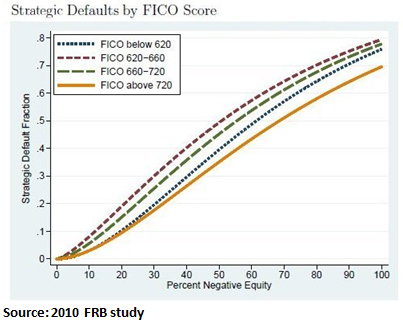
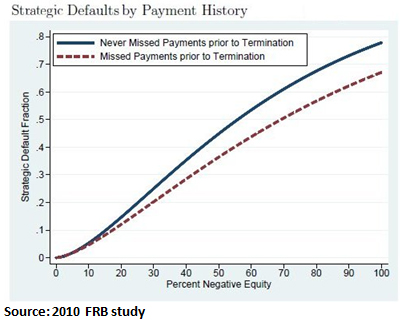



























.jpg)







